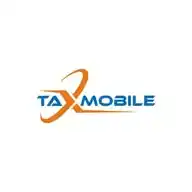
Taxmobile.Online
June 11, 2025 at 05:47 AM
A Life in Tax: Navigating Remote Work Challenges
It was a quiet Thursday morning in Lagos when Tayo, a skilled software engineer, received the email that would change his career forever. A U.K.-based tech giant had offered him a fully remote role with an annual salary of $80,000—paid in dollars. For Tayo, who had spent years working for Nigerian companies while battling the economic challenges of a depreciating naira, this was a dream come true. Yet, as he celebrated the life-changing opportunity, little did he know he was stepping into a labyrinth of tax complexities.
The Allure of Foreign Income
Tayo’s new job felt like freedom. Working from his cozy home office in Lagos, he developed cutting-edge software while receiving payments directly into his dollar account. But during a family conversation, his accountant cousin, Sade, raised a critical question: “Tayo, have you thought about the tax implications of earning foreign income while living in Nigeria?”
“What do you mean?” Tayo asked, visibly puzzled. “I’m earning from the U.K. How does Nigeria come into this?”
“Welcome to the world of global income taxation,” Sade replied, launching into an explanation of the Personal Income Tax Act (PITA) and Nigeria’s taxation rules. “As a Nigerian tax resident, you’re taxed on your global income. You’ll need to declare your earnings to the Lagos State Internal Revenue Service (LIRS). If you don’t, you risk penalties and audits.”
The Burden of Compliance
Reluctantly, Tayo agreed to meet with a tax advisor. Over several sessions, he learned about the 183-day rule and his status as a Nigerian tax resident. The advisor explained that Tayo could leverage the Nigeria-U.K. Double Taxation Agreement (DTA) to claim relief for any taxes paid in the U.K. But there was a catch—meticulous record-keeping was essential.
“Tayo, you’ll need to track every dollar you earn, taxes you pay abroad, and any deductions you’re eligible for,” the advisor stressed. “This isn’t just about compliance; it’s about ensuring you don’t overpay.”
For Tayo, this marked a turning point. He realized remote work wasn’t just about delivering results; it was also about navigating cross-border tax obligations.
The Employer’s Dilemma
Meanwhile, in London, Tayo’s employer faced its own set of challenges. The company’s finance team discovered a potential risk: Tayo’s activities in Nigeria might create a Permanent Establishment (PE) under Nigerian law, exposing the company to corporate income tax.
“His home office could be classified as a fixed place of business,” their tax consultant explained. “That would trigger PE status, meaning you’d owe taxes in Nigeria.”
The company quickly revamped its remote work policies, ensuring that Tayo’s activities were limited to software development and excluded revenue-generating operations tied to Nigerian clients. They also engaged Nigerian tax advisors to stay ahead of regulatory pitfalls.
Lessons from Case Studies
Tayo’s journey was not unique. Across Nigeria, professionals like him were grappling with similar challenges. Take Ada, a consultant working remotely for a Dutch firm. Her income was taxed in both countries until she discovered the Nigeria-Netherlands DTA, which saved her thousands in double taxation.
Or consider the case of a U.K.-based consultancy that hired several Nigerian experts for remote projects. Their misstep? Failing to recognize that these engagements could establish a taxable presence in Nigeria. The FIRS audited the company, resulting in hefty penalties and reputational damage.
Thriving in the Remote Work Era
Tayo’s story didn’t end with tax filings and compliance headaches. Armed with expert advice, he became a model remote worker, tracking his residency status, maintaining detailed income records, and leveraging every available tax relief.
For his employer, proactive measures paid off. By restructuring their remote work arrangements, they avoided PE risks and maintained profitability while retaining top global talent like Tayo.
A Tax Professional’s Perspective
As I reflect on Tayo’s story and countless others, it’s clear that remote work is both an opportunity and a challenge for Nigerian professionals and foreign employers. The tax landscape is intricate, but with the right strategies—understanding residency rules, leveraging DTAs, and seeking expert advice—it’s possible to thrive.
Remote work has redefined global employment, but one thing remains constant: compliance is non-negotiable. Whether you’re a remote worker earning in dollars or an employer navigating PE risks, remember this—knowledge is your greatest asset in the world of taxation.
Olatunji Abdulrazaq CNA, ACTI, ACIArb(UK) Founder/CEO, Taxmobile.Online
👍
1